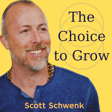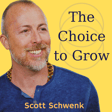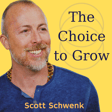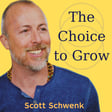
Emergent Leadership for a Thriving Planet with Abigail Lynam
In this episode of The Choice to Grow, Scott Schwenk is joined by systems thinker, educator, and inner development guide Dr. Abigail Lynam. Together, they explore what it means to lead during planetary transformation—how our internal development shapes our external impact. From generational healing to the science of interconnectedness, Abigail shares her path through grief, shadow, and emergence. A profound dialogue on belonging, leadership, and the conscious evolution of systems and self.
Abigail Lynam
Abigail Lynam is a guide for transformation—of self, of systems, of the shared life we inhabit. As a coach, facilitator, and creator of transformative learning journeys, she invites individuals and groups into deeper presence, expanded perspectives, and more awake, whole ways of leading and living.
She serves as senior faculty for Pacific Integral’s Emergent Leadership and Generating Transformative Change programs, offered on three continents, and teaches in Fielding Graduate University’s PhD program in Human and Organizational Development. A teacher candidate in Integral Polarity Practice, she is also a developmental coach and scorer with Stages International and a qualified administrator of the Intercultural Development Inventory.
Rooted in adult developmental psychology and informed by awareness-based, embodiment, and relational practices, Abigail’s work bridges inner and outer transformation. She is particularly passionate about the interdependence of individual and collective development—bridging divides, cultivating capacities for emergence, and supporting the awakening and unfolding of humanity in service to all life.
Scott Schwenk
Scott’s teachings, courses and master coaching guide leaders, seekers and creatives to explore the embodiment of their deepest selves in service of thriving on all levels of being, both individually and relationally.
You can receive a free guided meditation and explore Scott’s courses, workshops, retreats, training and master coaching at https://scottschwenk.com and can find him on Instagram @thescottschwenk.



